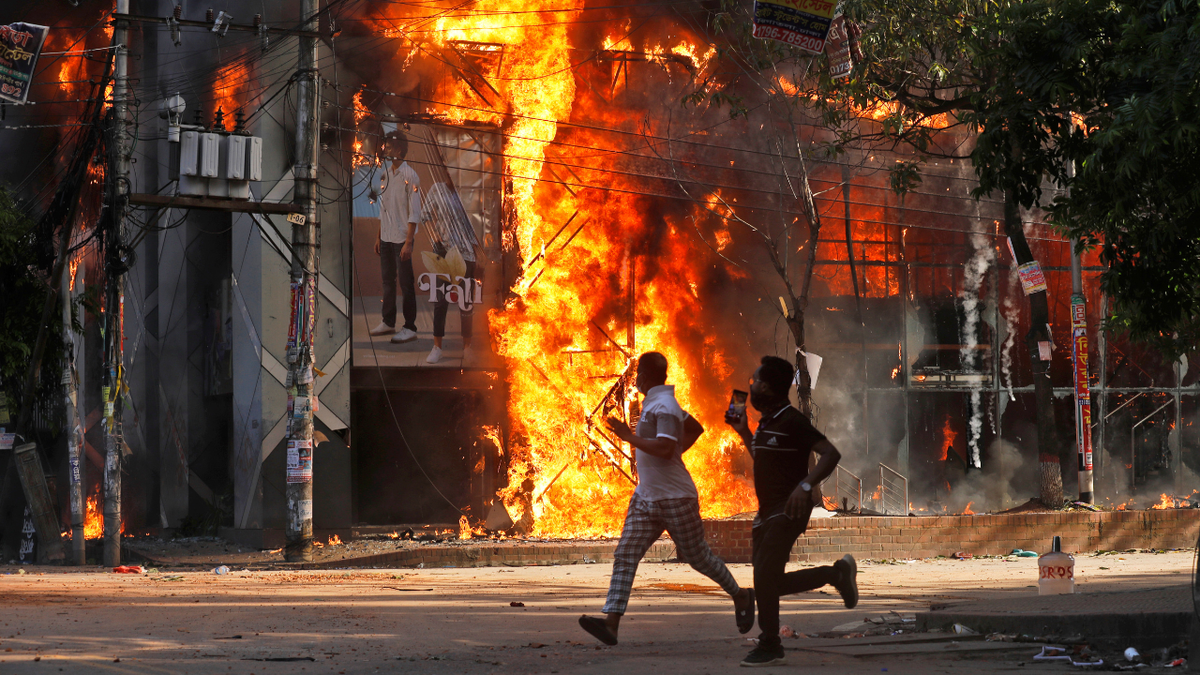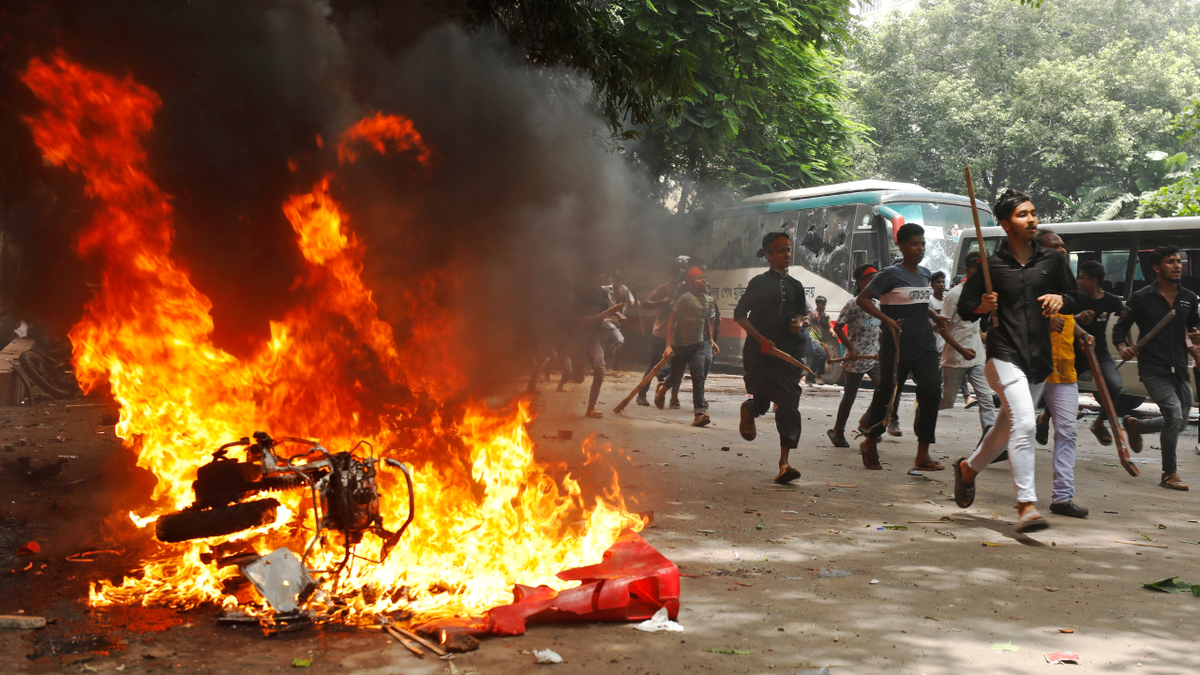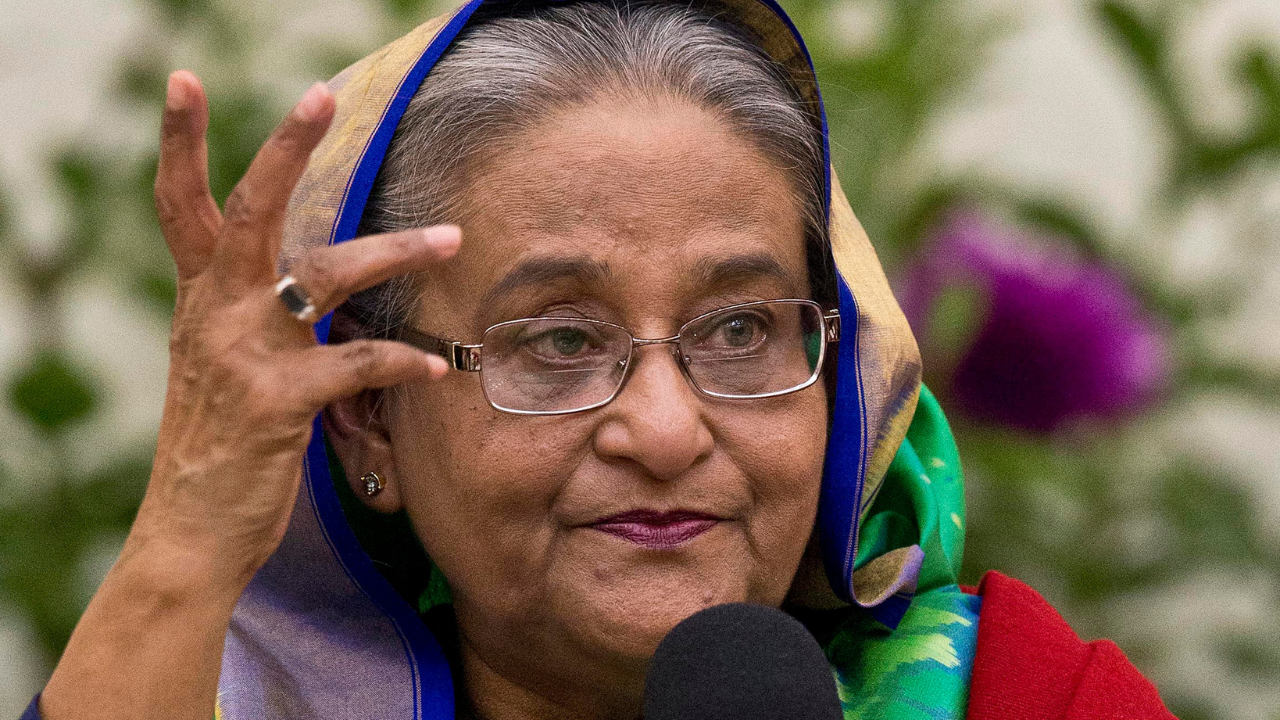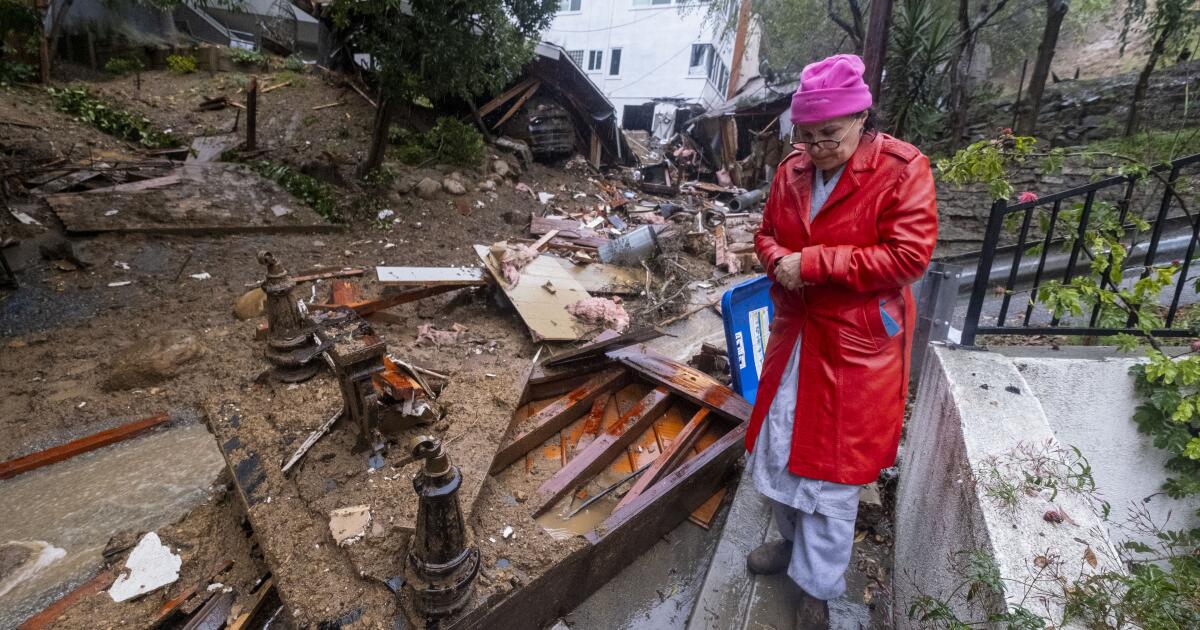- Bangladeshi Prime Minister Sheikh Hasina resigned on Monday, ending her 15-year tenure.
- Hasina was seen boarding a military helicopter shortly before plans to form an interim government were announced.
- The protests initially began peacefully in late June, with students demanding an end to the quota system for government jobs, but turned violent after clashes with police and pro-government activists at Dhaka University.
Bangladeshi Prime Minister Sheikh Hasina resigned on Monday, ending 15 years in power as thousands of protesters defied a military curfew and stormed her official residence.
Shortly after local media showed the embattled leader boarding a military helicopter with her sister, Bangladesh's military chief, General Waker-uz-Zaman, announced plans to seek the president's guidance on forming an interim government.
He promised the military would withdraw and launch an investigation into the deadly crackdown that fueled anger against the government, and asked citizens for time to restore peace.
BANGLADESH URGES UNIVERSITIES TO CLOSE AFTER 6 PEOPLE KILLED IN PROTESTS AND BOMBS AND WEAPONS FOUND
“Have faith in the army, we will investigate all the killings and punish those responsible,” he said. “I have ordered the army and the police not to fire any shots.”
Bangladeshi Prime Minister Sheikh Hasina speaks to reporters in Dhaka, Bangladesh, December 31, 2018. Protesters stormed Hasina's official residence on Monday, forcing her to flee. The leader's whereabouts are currently unknown. (AP Photo/Anupam Nath, File)
“Now it is the students' duty to remain calm and help us,” he added.
The protests began peacefully when frustrated students demanded an end to a quota system for government jobs, but the demonstrations have since morphed into an unprecedented defiance and uprising against Hasina and her ruling Awami League party.
The government tried to quell the violence with force, leaving nearly 300 people dead and further fueling anger and calls for Hasina to step down.
At least 95 people, including at least 14 police officers, were killed in clashes in the capital on Sunday, according to the country's main Bengali-language daily, Prothom Alo. Hundreds more were injured in the violence.

Men run past a shopping mall that was set on fire by protesters during a demonstration against Prime Minister Sheikh Hasina and her government to demand justice for victims killed in recent deadly clashes across the country, in Dhaka, Bangladesh, August 4, 2024. (AP Photo/Rajib Dhar)
At least 11,000 people have been arrested in recent weeks. The unrest has also led to the closure of schools and universities across the country, and authorities at one point imposed a curfew during which shooting on sight is permitted.
Over the weekend, protesters called for a “non-cooperation” initiative, asking people not to pay taxes or utility bills and not to report to work on Sunday, a working day in Bangladesh. Offices, banks and factories were open, but workers in Dhaka and other cities faced difficulties getting to work.
Hasina offered to talk to student leaders on Saturday, but a coordinator refused and announced a one-point demand for her resignation. Hasina reiterated her promises to investigate the deaths and punish those responsible for the violence. She said she was ready to sit down whenever protesters wanted.
Authorities cut mobile internet service on Sunday in an attempt to quell the unrest, while broadband internet service was briefly cut off on Monday morning. It was the second internet blackout in the country after protests turned deadly in July.

Men run past a burning vehicle inside the Bangabandhu Sheikh Mujib Medical College Hospital, which was set ablaze by protesters, during a demonstration against Prime Minister Sheikh Hasina and her government to demand justice for victims killed in the recent deadly clashes across the country, in Dhaka, Bangladesh, August 4, 2024. (AP Photo/Rajib Dhar)
On Monday, after three hours of broadband service being suspended, both broadband and mobile internet were restored.
Hasina said the protesters who engaged in “sabotage” and destruction were no longer students but criminals, and said people should deal with them with an iron fist.
The 76-year-old was elected to a fourth consecutive term in a January vote that was boycotted by her main opponents, raising questions about how free and fair the election was. Thousands of opposition members were jailed in the run-up to the election, which the government defended as democratic.
CLICK HERE TO GET THE FOX NEWS APP
Today she is the longest-serving leader in the history of Bangladesh, a predominantly Muslim nation of more than 160 million people strategically located between India and Myanmar.
Her political opponents have previously accused her of becoming increasingly autocratic and called her a threat to the country's democracy, and many now say the unrest is a result of her authoritarian tendencies and hunger for control at all costs.












